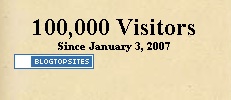Don’t worry if you don’t know what a retrochronism is. I just made the word up. But feel free to throw it around at the dinner table and the water cooler; it’s a thing now.
Let’s say an author from an earlier time period uses a term in a sense that’s appropriate to that author’s time period. Then, the author dies and the language evolves. New technologies are invented. Culture shifts. Later readers or audiences then interpret the term as used by the author through the lens of their own time period, and incorrectly think it means something entirely different from what the author could have possibly intended. That’s a retrochronism!
This is not to be confused with an anachronism, a term generally used to describe instances where an author uses something from his own time in a work that is set before that thing would have been possible or appropriate. Shakespeare has many such anachronisms, such as the clock striking in Julius Caesar. But a retrochronism is different. It isn’t a mistake by the author; it’s an accident of history.
We’ve had 400 years now to develop a few good examples for Shakespeare. The quintessential example is from Romeo and Juliet:
JULIET: O Romeo, Romeo! wherefore art thou Romeo?
Most readers of this blog probably know that “wherefore” means “why” and not “where.” But this is far from obvious, and many newcomers to Shakespeare, entering his world through this play, assume she’s searching for him from her balcony. Who says “wherefore” anymore?
Another common example can be found in Hamlet:
HAMLET: Madam, how like you this play?
QUEEN: The lady doth protest too much, methinks.
HAMLET: O! but she’ll keep her word.
In Shakespeare’s time, “protest” meant to promise. But today we think of it in the opposite sense of a denial. So when people quote the line, they often mean that a person is denying something so much that it must be true. But Gertrude meant that the lady was promising so much that it must be false!
Those two examples are probably the most well known, but below are my ten favorites, culled from years of introducing kids to Shakespeare and from my own journey of working through the language.
TEN. Was Doll Tearsheet a One-Percenter?
DOLL: A captain! God’s light, these villains will make the word captain as odious as the word ‘occupy,’ which was an excellent good word before it was ill sorted: therefore captains had need look to it.
Playgoers who have attended productions of Henry IV, Part Two in the past year must have been taken aback by this statement, possibly even suspecting editorial interference for political purposes.
But in Shakespeare’s time, the word “occupy” was slang for having sex with someone. It’s enough to make you wonder what was really going on at Zuccotti Park after hours.
NINE. Did the Witches prophesy Kitty Hawk?
FIRST WITCH: Here I have a pilot’s thumb,
Wrack’d as homeward he did come.
Most modern audiences are familiar with the word “pilot” as meaning someone who flies an airplane, obviously not what Shakespeare meant in Macbeth.
The word “pilot” meant (and still means) someone who steers a ship.
EIGHT. Was Lord Capulet a pimp?
CAPULET: What noise is this? Give me my long sword, ho!
Here is one that comes up often when working with kids; this example from Romeo and Juliet is as good as any. Shakespeare had a lot of words for “prostitute,” but “ho” was not among them.
If you bring your voice up on the word, it’s an antiquated expression of zeal. If you bring it down, it’s a contemporary form of derisive address. Voices up, please.
SEVEN. Was Bottom a Lea Michele fan?
BOTTOM: Nay, I can gleek upon occasion.
Folks who are “Glee Geeks” might enjoy imagining Nick Bottom from A Midsummer Night’s Dream as one of them. He admitted he can “gleek” after all.
Sure, I’m being a little silly with this one, but why not? “Gleek” means to joke around.
SIX. Did Olivia have some work done?
OLIVIA: We will draw the curtain and show you the picture. [Unveiling.] Look you, sir, such a one I was as this present: is’t not well done?
VIOLA: Excellently done, if God did all.
OLIVIA: ’Tis in grain, sir; ’twill endure wind and weather.
Viola’s quip “if God did all” can set a Twelfth Night audience roaring if delivered just so. Does Viola suspect a little Nip/Tuck help is behind Olivia’s epic beauty?
Don’t start fitting Dr. 90210 for a doublet and hose just yet. Viola is merely making a reference to cosmetics.
FIVE. Was Hamlet a fan of Wayne’s World?
HAMLET: I did love thee once.
OPHELIA: Indeed, my lord, you made me believe so.
HAMLET: You should not have believed me; for virtue cannot so inoculate our old stock but we shall relish of it: I loved you not.
Again, this one came from the kids, though it was more common back in the ’90’s, when Wayne and Garth had more of an effect on the language.
Think of the line from Hamlet (and similar lines throughout the canon) as being delivered like this: “I loved you… NOT!” Yeah, they really used to do that… I kid you not.
FOUR. Was Feste creating a hostile work environment?
MARIA: Nay, either tell me where thou hast been, or I will not open my lips so wide as a bristle may enter in way of thy excuse. My lady will hang thee for thy absence.
CLOWN: Let her hang me: he that is well hanged in this world needs to fear no colours.
MARIA: Make that good.
CLOWN: He shall see none to fear.
Well hanged? Oh, no he didn’t!
Well, no he didn’t. It’s usually a safe bet to assume that any possible sexual innuendo was intended by Shakespeare, but Twelfth Night pre-dates the earliest known uses of the expression “well hung” to refer to a generous anatomical endowment. Plus, in the next line, Feste makes it clear he’s literally referring to a hanging. If the sexual pun were intended, why would Shakespeare have backed off the joke?
THREE. Did Ariel suffer from low self-esteem?
ARIEL: Where the bee sucks, there suck I.
Ouch. It’s not hard to convince high-school students that Shakespeare’s characters do, in fact, suck. But would Shakespeare have said so in The Tempest?
No. Bees, you see… eh, go ask your father.
TWO. Did the Porter invent a new art form?
PORTER: Knock, knock! Who’s there i’ the other devil’s name! Faith, here’s an equivocator, that could swear in both the scales against either scale; who committed treason enough for God’s sake, yet could not equivocate to heaven: O! come in, equivocator.
Rather than answering the knocking at the door, the Porter from Macbeth imagines himself as the Porter at the gates of Hell, and does some schtick about the various characters he might meet in that position. The expression “Knock Knock, Who’s there” is used to introduce new characters in his standup routine.
But if you’re expecting him to answer “Ophelia,” you’re going to have a long wait. The Knock-Knock joke as we know it is a twentieth-century creation.
ONE. Is Dromio of Syracuse a pothead?
DROMIO S: I am transformed, master, am not I?
ANTIPHOLOUS S: I think thou art, in mind, and so am I.
DROMIO S: Nay, master, both in mind and in my shape.
ANTIPHOLOUS S: Thou hast thine own form.
DROMIO S: No, I am an ape.
LUCIANA: If thou art chang’d to aught, ’tis to an ass.
DROMIO S: ’Tis true; she rides me and I long for grass.
Zing! Dromio’s jonesing for some weed! The Comedy of Errors is a drug play!
But not really. Dromio just longs for the freedom of greener pastures. Grass means grass, baby. However, the “she rides me” part probably does mean what you think it means.
So those are my ten favorite retrochronisms from Shakespeare. Did I miss any? Feel free to add to the list!



